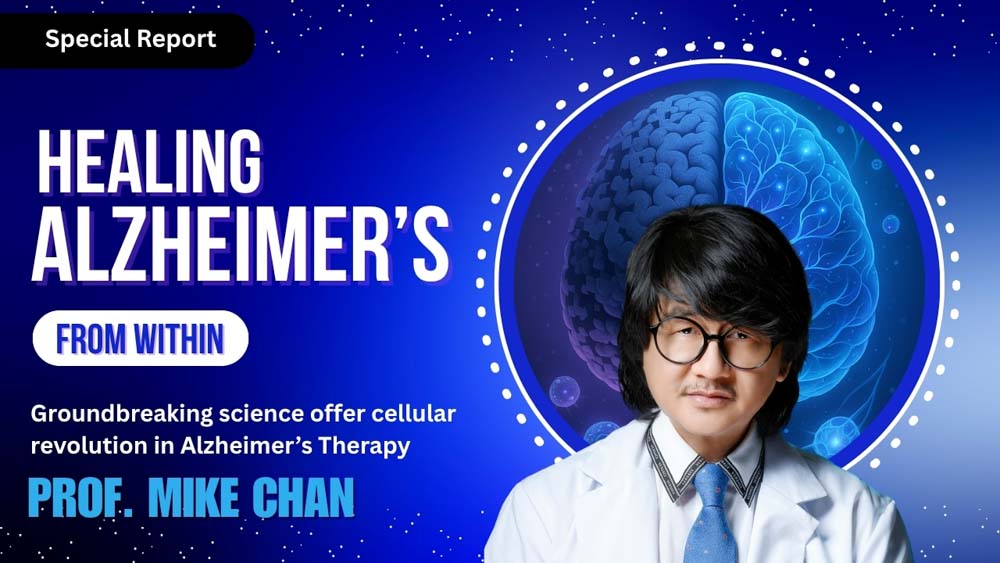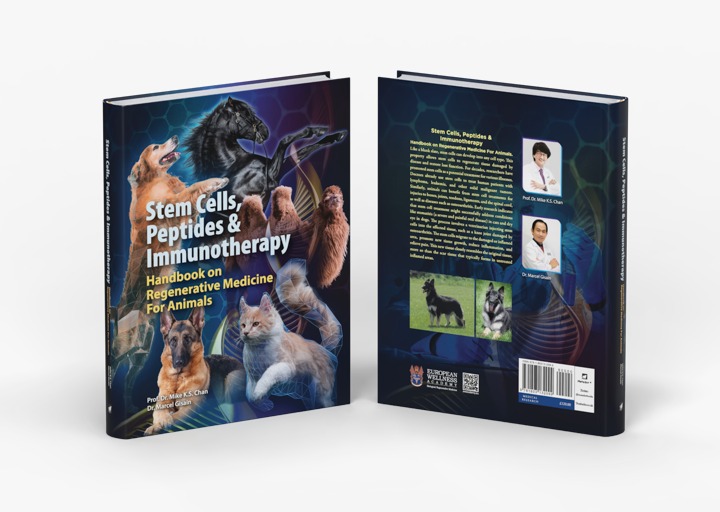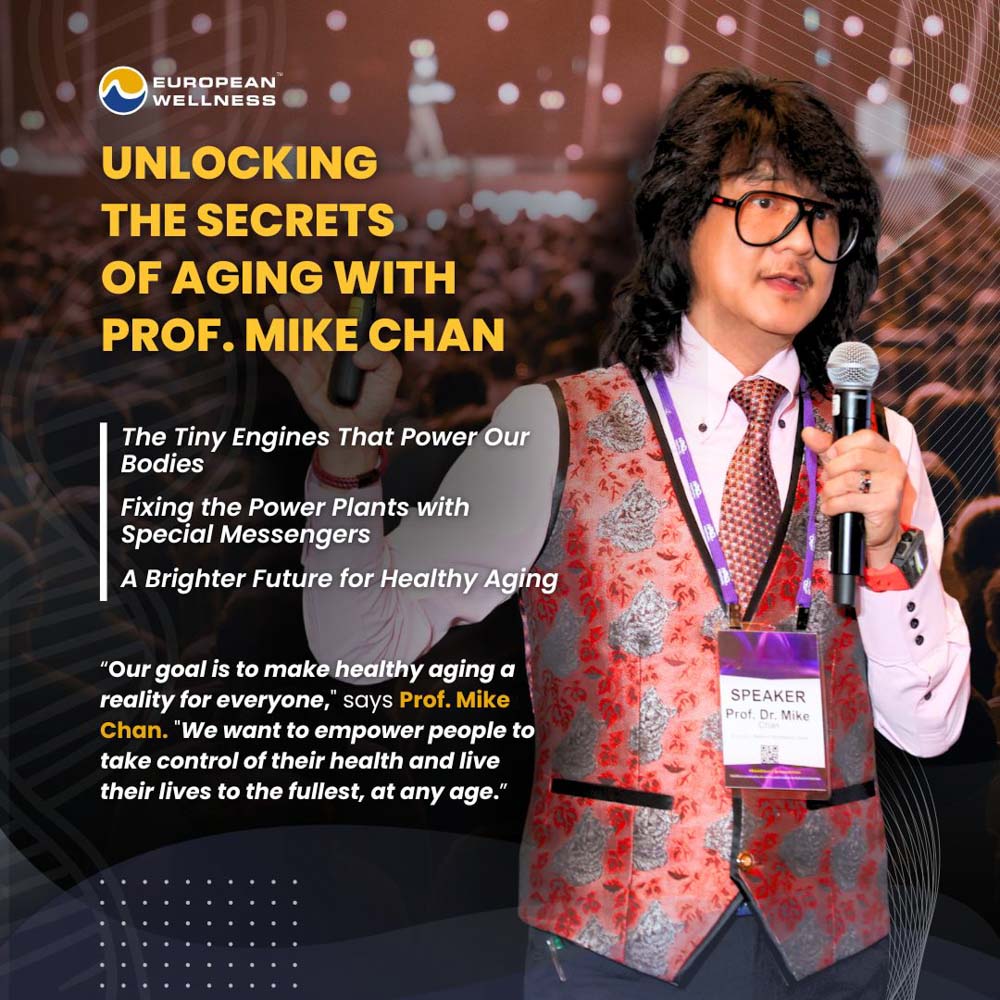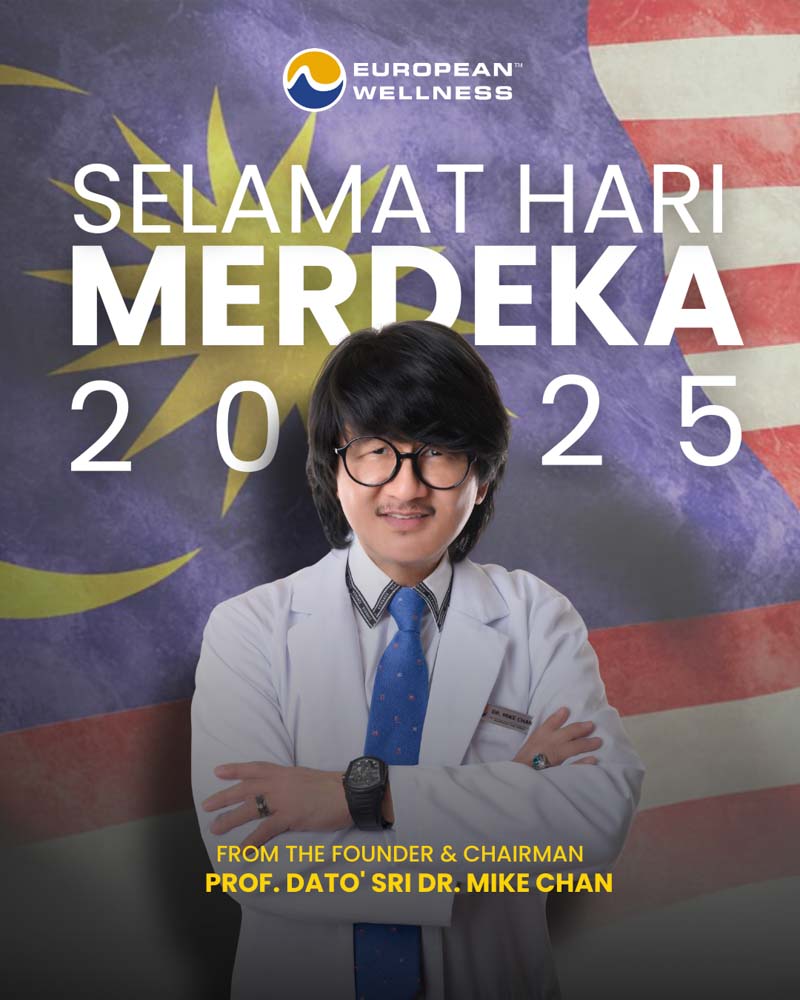From loyal dogs to playful cats and majestic horses, our animals are family. On this…
Alzheimer’s Breakthrough: Prof. Mike Chan and European Wellness Pioneer New Regenerative Paradigm

HEIDELBERG, Germany, July 1, 2025 — A groundbreaking research study led by Prof. Mike Chan and a team of physicians and scientists at the European Wellness Biomedical Group (EWBG) is reshaping the global understanding of Alzheimer’s disease (AD) — from its root causes to the future of treatment.
The peer-reviewed paper titled “Emerging Paradigms in Alzheimer’s Disease: Etiology, Pathogenesis, and Novel Regenerative Treatments with Neural Progenitor Stem Cells and Exosomes” was published by Genesis Publications in the Journal of Stem Cell Research (Vol. 6, Issue 2, July 2025).
Co-authored by Prof. Mike Chan and scientists from European Wellness Biomedical Group and its partner institutions, the study outlines a breakthrough regenerative model using neural progenitor cells and exosomes to address Alzheimer’s – presenting compelling new evidence for targeting the disease at its cellular and molecular origins.
Rethinking Alzheimer’s: A Cellular Crisis
According to Prof. Mike Chan, Alzheimer’s is not just a disease of aging — it is a complex, multifactorial neurodegenerative disorder involving mitochondrial dysfunction, neuroinflammation, vascular compromise, and proteinopathies such as amyloid-beta and tau accumulation. While current pharmaceutical approaches address symptoms temporarily, they fail to arrest or reverse the biological processes causing neural decay.
“Our research shows that Alzheimer’s disease stems from multiple converging biological disruptions,” said Prof. Mike Chan, Chairman of European Wellness. “This isn’t simply about aging—this is about systemic failure at the cellular level. And that means we need systemic, cellular-level solutions.”
A New Regenerative Model: Stem Cells and Exosomes
The research highlights the novel therapeutic use of neural progenitor stem cells (NPSCs) and extracellular vesicle-derived exosomes to regenerate brain function in patients with Alzheimer’s. These therapies are not merely theoretical — they are already being explored and applied in European Wellness centers around the world.
“NPSCs possess the unique capacity to migrate toward damaged brain regions and differentiate into neurons and glial cells,” Prof. Chan explained. “They also promote neurogenesis and angiogenesis, facilitating the repair of blood–brain barrier integrity and reducing oxidative stress and inflammation.”
Exosomes, nanoscale vesicles secreted by stem cells, are also showing immense promise. Rich in mRNA, miRNA, and neurotrophic factors, exosomes can modulate gene expression, promote synaptic plasticity, and suppress inflammatory cascades — all without the risks associated with full cell transplantation.
“Think of exosomes as precision couriers delivering molecular repair instructions directly to diseased cells,” said Prof. Chan. “This is not science fiction—this is the frontier of biomedicine.”
Why Traditional Treatments Fall Short
The paper details why conventional pharmaceutical treatments have repeatedly failed in clinical trials. Most current drugs either target amyloid-beta plaques or attempt to enhance neurotransmission, but these offer only temporary relief without halting disease progression.
“Targeting a single protein in a multifactorial disease is like patching a leak in a sinking ship,” Prof. Chan warned. “The reality is that AD is driven by a cascade of dysfunctions — from mitochondrial breakdown to chronic inflammation. We need therapies that address the entire system.”
Personalized Regeneration: A New Era of Precision Medicine
A key element of the EWBG approach is personalization. The researchers advocate for tailoring regenerative treatments based on the patient’s stage of disease, neuroimaging findings, genetic risk factors (e.g., APOE ε4 status), and inflammatory profile.
“Our protocols integrate not just NPSCs and exosomes, but also antioxidants, immunomodulators, and metabolic support — creating a synergistic effect,” said Prof. Chan. “Longevity is meaningless without cognitive integrity. That’s what we’re restoring.”
Clinical Impact and Global Hope
While the research is ongoing, case studies and early applications in clinical practice are promising. Patients have shown improvements in cognition, emotional stability, and quality of life — outcomes not typically seen with standard therapies.
Prof. Chan emphasizes that the future of Alzheimer’s care is already being built in European Wellness facilities. “This is not about managing decline — it’s about reversing it. We are witnessing recovery where there was once only regression.”
Conclusion: A Turning Point in Alzheimer’s Medicine
As global cases of Alzheimer’s are expected to triple by 2050, this research marks a critical turning point. With stem cell–based interventions, exosome technology, and systems-level restoration, Prof. Mike Chan and the European Wellness team are forging a path from despair to regeneration.
“We must stop treating symptoms in isolation and start treating the brain as the dynamic, regenerable organ it truly is,” said Prof. Chan. “The answer is in the cells — and the time is now.”
To learn more about regenerative protocols for Alzheimer’s and neurodegenerative diseases, visit: https://european-wellness.eu/publications/paradigms-in-alzheimers-disease.
Follow European Wellness Academy:


